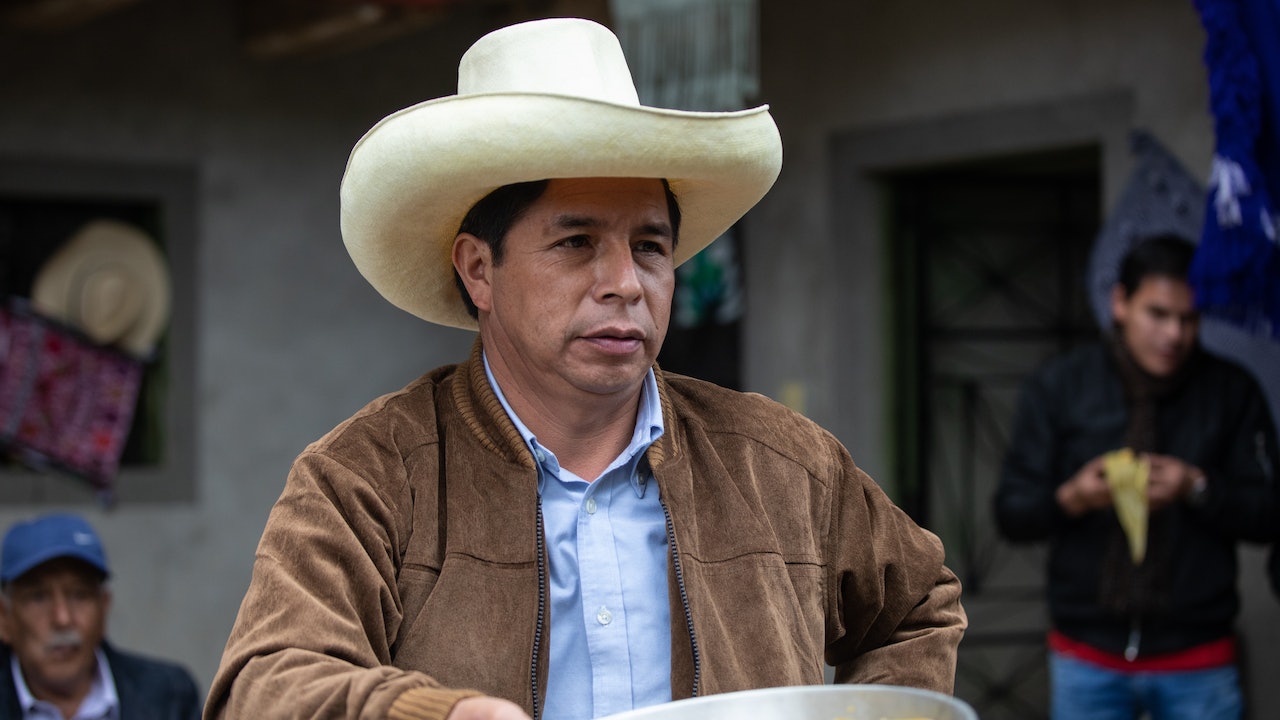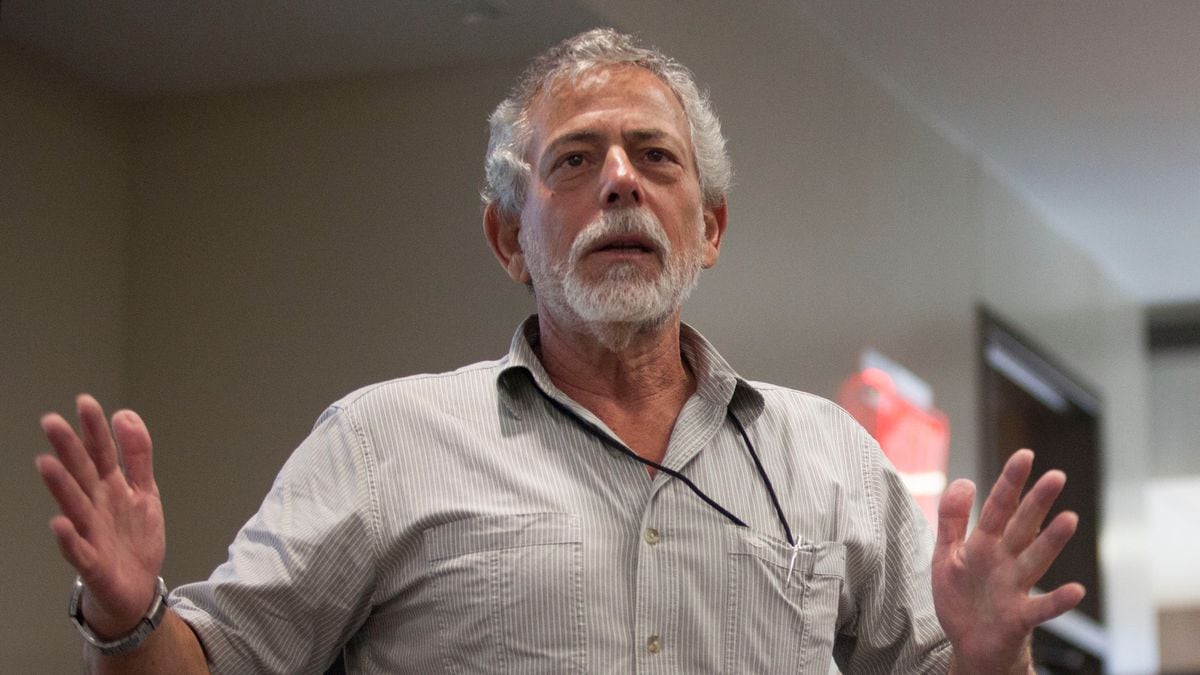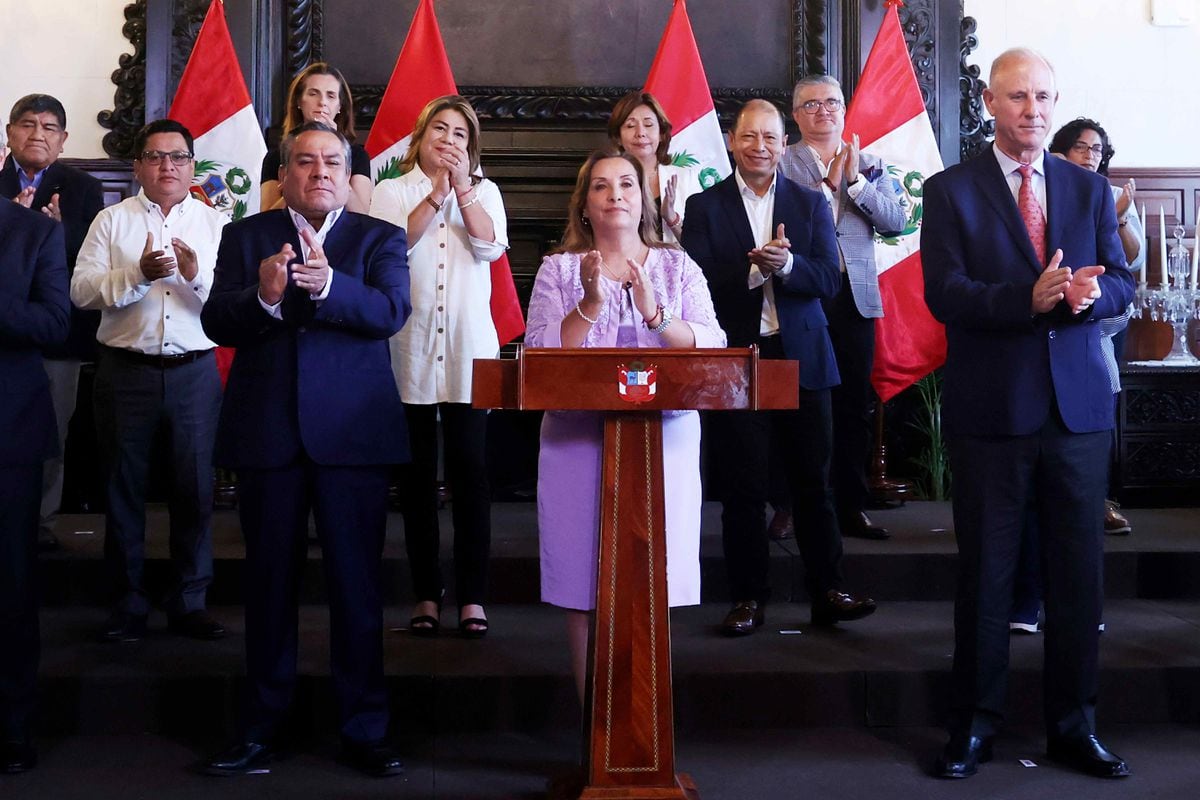On December 7, the Peruvian "Peasant President" Pedro Castillo, who had been in power for 16 months, suddenly announced on TV that he would dissolve the Congress and establish an emergency law a few hours before the third congressional impeachment vote during his tenure. The state government governs the country by law and enters martial law across the country.
Castillo, who "self-couped" as the head of state but did not have military support, can be regarded as "died before the battle": many cabinet officials and aides immediately resigned and jumped ship after hearing the news; members of Congress subsequently voted by a large margin Passed impeachment; after Castillo drove away from the presidential palace, he was suspected of being blocked by traffic jams caused by street demonstrations, and failed to rush to the Mexican embassy that was willing to accommodate him. He was arrested and brought to justice by the police on charges of rebellion.
His deputy, Dina Boluarte, was sworn in as interim president immediately, becoming the first female president in Peru's history and the fifth president in Peru in four years.
Castillo, who was elected president in 2021 with a political amateur background as a rural teacher and farmer from the countryside, has been regarded as part of a new wave of left-wing red waves coming to power in Latin America.
Since 2018, left-wing figures in Mexico, Argentina, Bolivia, Peru, Honduras, Chile, Colombia and Brazil have all won national leadership elections, turning swaths of Latin America red.
However, like this red tide, Castillo's "self-coup" failure and resignation this time is not a single incident - left-wing rulers in various countries are facing different political difficulties.
After Castillo was impeached and stepped down, people in the capital Lima took to the streets to celebrate.
(Reuters)
16 months of incompetence and disabling
Castillo's administration can be said to be a symbol of "incompetence" and "loss of governance".
Since he came to power, he has employed nepotism, and his family members and cronies have been involved in various criminal investigations, ranging from corruption, domestic violence to murder.
He and his relatives have 6 criminal investigations, at least 3 of which are related to government contracts, 5 are related to the "criminal network" led by the president, and 1 is related to Castillo and his wife plagiarizing their thesis to obtain a master's degree degree, and even his daughter is being imprisoned for money laundering.
In just over a year, Castillo has changed 5 cabinets and more than 80 cabinet officials, replacing more than one senior official every week on average.
A few days before its "self-coup", the resignation of its fifth defense minister had already sparked rumors of a military coup, leading some members of the opposition Congress to decide to stay in Congress to prevent it from being shut down by the military.
Prior to this, his sixth Minister of the Interior was also fired for launching the hunt for Castillo's fugitive cronies.
One of his former transportation ministers resigned because of running an illegal transportation business, and later became a wanted fugitive.
Under all kinds of chaos, Castillo, who is in daily political crisis, of course has no achievements to speak of.
He has always presented himself as a political victim, but his popularity has dropped to more than 20% in the first few months after taking office (though he still has more than 40% support in rural areas).
Investors have recently begun to worry that political instability in Peru will hinder economic development, and the country's finance ministry last month lowered its economic growth for this year.
Castillo himself seems to be hindering economic activities. Since he took office, there are alleged government officials behind the continuous demonstrations that hindered the start of work at two large copper mines in Peru.
An anti-Castillo demonstration in late November.
(Reuters)
Preempting the coup or the main reason for the success of impeachment
However, Congress, which passed impeachment by a large majority of 101 votes in favor and 6 votes against on the grounds of "enduring moral incompetence", is not innocent.
The 130-seat Peruvian Congress is now divided into 16 political parties, the single largest party (24 seats) being the People's Power (FP) led by Keiko Fujimori, the daughter of former President Alberto Fujimori.
After Keiko Fujimori lost to Castillo by less than 0.3 percentage points in the 2021 presidential election, the right wing of Congress has a sense of fear of the extreme left seizing power and has been trying to impeach the president. , failed to reach the impeachment threshold of 87 seats on both occasions.
The reason why Castillo, who is obviously incapable of governing, survived the impeachment vote twice is that he is willing to pass some conservative bills to attract the support of some opposition members, and some members also hope to maintain the existence of a weak government. On the other hand, since members of Congress cannot immediately seek re-election after 2019, the impeachment of the president may lead to re-election of Congress, and current members of Congress will have an unemployment crisis.
Under such restrictions, this impeachment vote may not have been passed.
The number of supporters in the previous two impeachment votes was only 46 and 55, far below the threshold, and only 67 members signed the impeachment motion.
Castillo's pre-staged coup ahead of the impeachment vote may have been the proximate cause of shocking lawmakers who ousted him.
Keiko Fujimori, the daughter of former president Alberto Fujimori, is Castillo's 2021 presidential opponent.
(Getty Images)
Incompetence in planning a coup
Castillo's coup d'état ironically bears the shadow of former President Fujimori's "self-coup" in 1992, which also shut down Congress and then ruled under dictatorship for eight years as a democratically elected president.
The difference is that Fujimori's coup was carried out with the support of the army, and there was no eager input from the street people.
Last month, Castillo had threatened to dissolve Congress and was also rumored to have communicated with military leaders to inquire about their intentions.
However, after he went on TV to announce the dissolution of the Congress, the military and the police issued a joint statement saying that his actions were "inconsistent with the existing constitutional order" and immediately cut off the seat with the president; "; Castillo's foreign minister also immediately accused the coup, called on the international community to intervene, and immediately resigned.
The U.S. embassy in Lima was also quick to express its opposition to Castillo's dissolution of Congress.
It is obvious that Castillo's coup was not only misreading the sentiments of the people and the current situation, but also a rash move without certainty.
Under the countercurrent at home and abroad, Castillo's "self-coup" ended in a farce.
Its inability to engineer the coup would also be a fitting end to his 16-month presidency.
There were also demonstrations against Castillo on the streets of Lima. The woman in the picture held the words "Pedro (Castillo's name) friend, the people are with you".
(Reuters)
However, after Castillo stepped down, Peru's political instability continued.
After the former Vice President Boluart was sworn in and "sat upright", he expressed the hope that the people would give her space and time to save the country.
However, after more than a year of political instability, 60% of Peruvians hope that the government can reshuffle and support early elections.
Moreover, the conflict between Congress and the president, which is dominated by opposition parties, does not seem to end immediately because of the change of president.
Since 2016, after the explosion of political corruption cases, Peru has entered a long-term political instability. During this period, the two former presidents faced impeachment. In 2020, there was a chaotic situation where the president was changed three times a week.
At the moment, the political turmoil in Peru is at best a temporary lull.
Castillo's resignation is more likely to indicate that the red tide in Latin America in recent years is just false fire.
With the exception of Peru, left-wing rulers in other countries are facing different political headwinds.
The Fiction and Reality of Latin America's Left Turn
In Argentina, where the general election will be held in 2023, the current left-wing vice-president Cristina Fernández de Kirchner, who actually holds more power and is likely to be elected president, was recently found guilty of corruption and sentenced to six years in prison, depriving her right to participate in politics lifelong.
While she is expected to appeal and she still has immunity for now as vice president, the right has a better chance of returning to power when the left fails to save the economy.
On December 7, Vice President Dina Boluarte was sworn in as interim president.
Not much is known about her.
(Reuters)
Whether it is the left-wing presidents Gabriel Boric and Gustavo Petro who came to power in Chile and Colombia this year, or the former Brazilian president Luiz Inácio Lula da Silva who will take office again in January next year , have to face a Congress with a huge opposition force like Castillo.
The Chilean constitutional amendment that Boric supported after taking office has failed in the referendum.
Lula did not take office, and his plan to bypass the constitution to increase government spending by as much as $29 billion has also been questioned by all parties.
Mexican President Andrés Manuel López Obrador, the "first person" of this wave of Latin American red tide, also suffered a big setback in Congress this week because of his constitutional amendment to modify the electoral system.
Opposition parties have united to prevent the success of the constitutional amendment, giving them hope of a common candidate in 2024.
According to a recent analysis by The Economist, Latin America's red tide is not a result of voters leaning more toward the left, but rather an accidental result of anti-establishment sentiment in the region.
Against the background of poor governance by left-wing leaders in various countries in the region, the elections in the next few years are likely to prove that this red wave is actually different from the early 2000s, just a false fire on the surface.
Democracy dying?
│The third wave of democratized countries: Suffering from the common problem of "non-free democracy" Colombia's first left-wing president Latin America "Pink Wave" returns to the Summit of the Americas: Latin America's left wing returns to North America Biden's diplomatic limitations Backyard fire?


/cloudfront-eu-central-1.images.arcpublishing.com/prisa/AXHYDCVCLRA3DGM5WRNHHS2OKQ.jpg)





/cloudfront-eu-central-1.images.arcpublishing.com/prisa/KSQTCK7XJVBFROZXUOP5CEEXV4.png)
